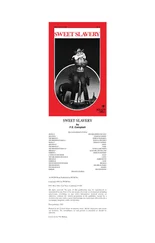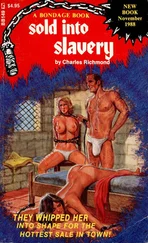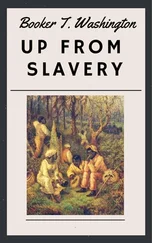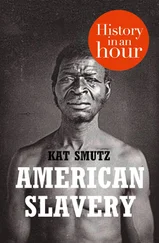1 ...8 9 10 12 13 14 ...32 Such scenes of horror as above described are so common in Georgia that they attract no attention. To threaten them with death, with breaking in their teeth or jaws, or cracking their heads, is common talk, when scolding at the slaves.--Those who run away from their masters and are caught again generally fare the worst. They are generally lodged in jail, with instructions from the owner to have them cruelly whipped. Some order the constables to whip them publicly in the market. Constables at the south are generally savage, brutal men. They have become so accustomed to catching and whipping negroes, that they are as fierce as tigers. Slaves who are absent from their yards, or plantations, after eight o'clock P. M., and are taken by the guard in the cities, or by the patrols in the country, are, if not called for before nine o'clock A. M. the next day, secured in prisons; and hardly ever escape, until their backs are torn up by the cow-hide. On plantations, the evenings usually present scenes of horror. Those slaves against whom charges are preferred for not having performed their tasks, and for various faults, must, after work-hours at night, undergo their torments. I have often heard the sound of the lash, the curses of the whipper, and the cries of the poor negro rending the air, late in the evening, and long before day-light in the morning.
It is very common for masters to say to the overseers or drivers, "put it on to them," "don't spare that fellow," "give that scoundrel one hundred lashes," &c. Whipping the women when in delicate circumstances, as they sometimes do, without any regard to their entreaties or the entreaties of their nearest friends, is truly barbarous. If negroes could testify, they would tell you of instances of women being whipped until they have miscarried at the whipping-post. I heard of such things at the south--they are undoubtedly facts. Children are whipped unmercifully for the smallest offences, and that before their mothers. A large proportion of the blacks have their shoulders, backs, and arms all scarred up, and not a few of them have had their heads laid open with clubs, stones, and brick-bats, and with the butt-end of whips and canes--some have had their jaws broken, others their teeth knocked in or out; while others have had their ears cropped and the sides of their cheeks gashed out. Some of the poor creatures have lost the sight of one of their eyes by the careless blows of the whipper, or by some other violence.
But punishing of slaves as above described, is not the only mode of torture. Some tie them up in a very uneasy posture, where they must stand all night, and they will then work them hard all day--that is, work them hard all day and torment them all night. Others punish by fastening them down on a log, or something else, and strike them on the bare skin with a board paddle full of holes. This breaks the skin, I should presume, at every hole where it comes in contact with it. Others, when other modes of punishment will not subdue them, cat-haul them--that is, take a cat by the nape of the neck and tail, or by the hind legs, and drag the claws across the back until satisfied. This kind of punishment poisons the flesh much worse than the whip, and is more dreaded by the slave. Some are branded by a hot iron, others have their flesh cut out in large gashes, to mark them. Some who are prone to run away, have iron fetters riveted around their ancles, sometimes they are put only on one foot, and are dragged on the ground. Others have on large iron collars or yokes upon their necks, or clogs riveted upon their wrists or ancles. Some have bells put upon them, hung upon a sort of frame to an iron collar. Some masters fly into a rage at trifles and knock down their negroes with their fists, or with the first thing that they can get hold of. The whiplash-knots, or rawhide, have sometimes by a reckless stroke reached round to the front of the body and cut through to the bowels. One slave-holder with whom I lived, whipped one of his slaves one day, as many, I should think, as one hundred lashes, and then turned the butt-end and went to beating him over the head and ears, and truly I was amazed that the slave was not killed on the spot. Not a few slaveholders whip their slaves to death, and then say that they died under a "moderate correction." I wonder that ten are not killed where one is! Were they not much hardier than the whites many more of them must die than do. One young mulatto man, with whom I was well acquainted, was killed by his master in his yard with impunity. I boarded at the same time near the place where this glaring murder was committed, and knew the master well. He had a plantation, on which he enacted, almost daily, cruel barbarities, some of them, I was informed, more terrific, if possible, than death itself. Little notice was taken of this murder, and it all passed off without any action being taken against the murderer. The masters used to try to make me whip their negroes. They said I could not get along with them without flogging them--but I found I could get along better with them by coaxing and encouraging them than by beating and flogging them. I had not a heart to beat and kick about those beings; although I had not grace in my heart the three first years I was there, yet I sympathised with the slaves. I never was guilty of having but one whipped, and he was whipped but eight or nine blows. The circumstances were as follows: Several negroes were put under my care, one spring, who were fresh from Congo and Guinea. I could not understand them, neither could they me, in one word I spoke. I therefore pointed to them to go to work; all obeyed me willingly but one--he refused. I told the driver that he must tie him up and whip him. After he had tied him, by the help of some others, we struck him eight or nine blows, and he yielded. I told the driver not to strike him another blow. We untied him, and he went to work, and continued faithful all the time he was with me. This one was not a sample, however--many of them have such exalted views of freedom that it is hard work for the masters to whip them into brutes, that is to subdue their noble spirits. The negroes being put under my care, did not prevent the masters from whipping them when they pleased. But they never whipped much in my presence. This work was usually left until I had dismissed the hands. On the plantations, the masters chose to have the slaves whipped in the presence of all the hands, to strike them with terror.
Numbers of poor slaves run away from their masters; some of whom doubtless perish in the swamps and other secret places, rather than return back again to their masters; others stay away until they almost famish with hunger, and then return home rather than die, while others who abscond are caught by the negro-hunters, in various ways. Sometimes the master will hire some of his most trusty negroes to secure any stray negroes, who come on to their plantations, for many come at night to beg food of their friends on the plantations. The slaves assist one another usually when they can, and not be found out in it. The master can now and then, however, get some of his hands to betray the runaways. Some obtain their living in hunting after lost slaves. The most common way is to train up young dogs to follow them. This can easily be done by obliging a slave to go out into the woods, and climb a tree, and then put the young dog on his track, and with a little assistance he can be taught to follow him to the tree, and when found, of course the dog would bark at such game as a poor negro on a tree. There was a man living in Savannah when I was there, who kept a large number of dogs for no other purpose than to hunt runaway negroes. And he always had enough of this work to do, for hundreds of runaways are never found, but could he get news soon after one had fled, he was almost sure to catch him. And this fear of the dogs restrains multitudes from running off.
Читать дальше












